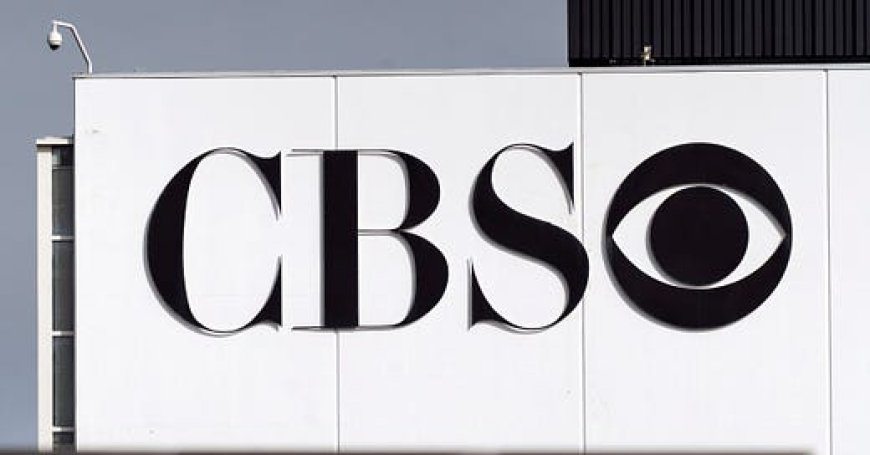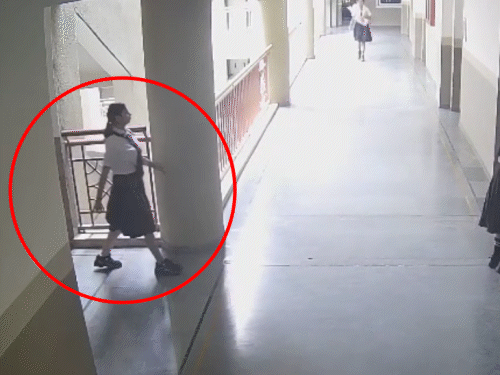CBS News’ ‘Bias Monitor’ Sparks Outcry: A Win for Trump, A Warning for Journalism
CBS News’ new “bias monitor” sparks outrage as critics call it newsroom thought-policing. While Trump sees it as validation, press freedom advocates warn of dangerous consequences.

Sunday, August 17, 2025 — CBS News has come under intense scrutiny after reports revealed that the network is experimenting with a so-called “bias monitor” — an internal system designed to flag content for political slant. While supporters argue the tool aims to ensure balanced reporting, critics warn it crosses into dangerous territory, resembling a “thought-police informant” inside a newsroom.
The development is being described by some analysts as a win for President Donald Trump, who has long accused mainstream media outlets of being biased against him. But for many journalists and free speech advocates, it signals a troubling step toward editorial surveillance that could undermine press independence.
The System and Its Origins
The bias-monitoring initiative reportedly began earlier this summer, with CBS management testing software that evaluates news scripts and story framing. According to insiders, the tool was meant to provide editors with feedback on whether political reporting leaned left or right.
The program gained traction inside the company after CBS faced criticism from Trump’s allies for what they saw as unfair coverage of his administration. In response, executives sought a way to demonstrate accountability.
On the surface, the concept appears neutral — a method of ensuring balanced journalism. But the backlash has been swift, with newsroom employees and press freedom organizations arguing that such monitoring undermines editorial judgment and risks self-censorship.
Trump’s Longstanding Battle with the Media
For Trump, the existence of CBS’s bias monitor validates years of his claims about media partisanship. Since his first presidential run in 2016, Trump has framed mainstream news outlets as adversaries, often labeling them “fake news.”
During a press stop in New Jersey on Saturday, August 16, 2025, Trump welcomed the CBS revelation, telling reporters, “It shows you what we’ve been saying all along — the media has been biased. Now even they have to admit it.”
Analysts note that the monitor may embolden Trump’s narrative and serve as a political tool in his ongoing reelection campaign.
A Blow to Newsroom Independence
The greater concern for many is what this means for journalism. Critics argue that a system monitoring journalists for “bias” could pressure reporters into avoiding stories or framing them in ways that appease management rather than reflect the truth.
“It’s not about whether you like or dislike CBS,” said one senior media analyst quoted in NPR. “The idea of a bias monitor inside a newsroom is chilling. It sets a precedent for policing thought, not just editing copy.”
Free speech advocates also worry that such systems could expand beyond political coverage, eventually influencing how sensitive stories on business, culture, or international affairs are reported.
Warning for the Industry
The CBS controversy highlights a larger debate in the American media landscape: how to balance fairness with editorial freedom. Tools meant to “correct” bias could erode trust in journalism by making it appear that reporters are no longer trusted to make independent judgments.
The Committee to Protect Journalists (CPJ) issued a statement on Sunday, August 17, warning that newsroom monitoring systems risk creating a chilling effect. “Journalists should be free to pursue stories without fear that software will flag their work as politically incorrect,” the organization said.
The story has sparked fierce debate on social platforms, where both critics of CBS and defenders of press freedom are weighing in. The New York Times reported that the controversy could spark similar discussions at other networks considering algorithmic checks on reporting.
Why This Matters
For everyday news consumers, the idea of a “bias monitor” may seem abstract, but its consequences are concrete. If reporters fear their work will be flagged, they may water down coverage or avoid challenging powerful figures. In the long run, that undermines the very role of journalism in a democracy — to hold leaders accountable, whether they are Democrats, Republicans, or anyone else in power.
The CBS experiment may soon be scrapped under pressure, but its brief existence serves as a warning: attempts to police newsroom speech, no matter how well-intentioned, risk eroding public trust more than they repair it.
What's Your Reaction?
 Like
0
Like
0
 Dislike
0
Dislike
0
 Love
0
Love
0
 Funny
0
Funny
0
 Angry
0
Angry
0
 Sad
0
Sad
0
 Wow
0
Wow
0







































































